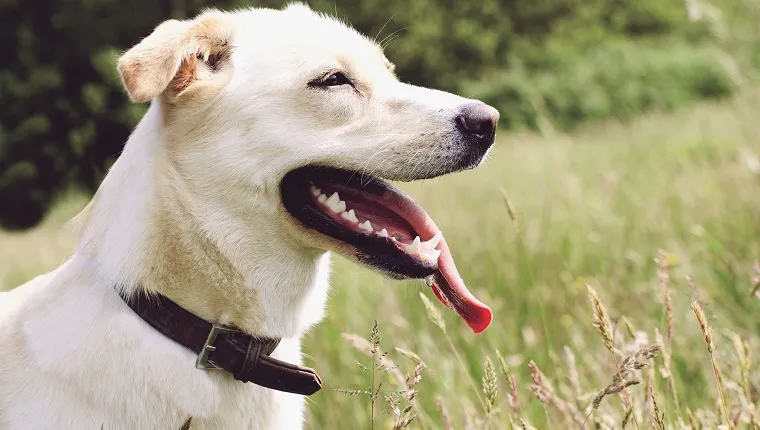Welcome to our comprehensive guide on the Labsky, a captivating hybrid dog breed that combines the intelligence and friendly nature of the Labrador Retriever with the striking appearance and endurance of the Siberian Husky. Join us as we delve into the origins, unique characteristics, care essentials, training tips, and health considerations of this energetic and lovable crossbreed. Whether you’re considering adopting a Labsky or simply curious about this dynamic mix, prepare to uncover everything you need to know about these delightful companions!
Origins and History of the Labsky
The Rise of Hybrid Vigor
The Labsky is a relatively recent crossbreed that has gained popularity in the past few decades, particularly in North America and Europe. Like many hybrid breeds, the Labsky was likely bred to combine desirable traits from both parent breeds—the Labrador Retriever and the Siberian Husky. Each contributing its unique qualities, these parent breeds create a hybrid known for intelligence, athleticism, and a friendly disposition.
Understanding Parent Breeds
Labrador Retriever: The Versatile Companion
Originating from Newfoundland, Labrador Retrievers are renowned for their friendly demeanor, intelligence, and versatility. Originally bred as water retrievers, they excel in various roles, from hunting and retrieving to serving as therapy and assistance dogs.
Siberian Husky: The Sleek Sled Dog
Hailing from Siberia, Siberian Huskies are known for their endurance, striking appearance, and independent spirit. Bred to pull sleds over long distances in harsh Arctic conditions, they possess strong instincts and a high energy level.
Physical Characteristics of the Labsky
Appearance and Size
Labskies can vary widely in appearance, taking after either parent breed or displaying a blend of characteristics. They typically exhibit a sturdy build with a medium to large size, standing between 20 to 24 inches tall at the shoulder and weighing anywhere from 40 to 80 pounds, depending on their lineage.
Coat and Colors
The Labsky’s coat is often a blend of the Labrador Retriever’s short, dense fur and the Siberian Husky’s longer, thicker double coat. Common coat colors include black, chocolate, yellow, gray, and combinations thereof, often with striking markings or patterns inherited from the Husky parent.
Temperament and Behavior
Friendly and Energetic
Labskies are known for their friendly and outgoing personalities, inherited from both Labrador Retrievers and Siberian Huskies. They are typically sociable dogs that enjoy being around people and other pets, making them excellent family companions.
Exercise Needs
Due to their high energy levels and working dog heritage, Labskies require regular exercise and mental stimulation to thrive. Activities such as daily walks, jogging, hiking, and interactive play sessions are essential to keep them physically fit and mentally engaged.
Training Your Labsky
Positive Reinforcement Approach
Labskies respond well to positive reinforcement training methods, such as praise, treats, and rewards for desired behaviors. They are intelligent and eager to please, making them relatively easy to train with consistent and patient guidance.
Socialization
Early and ongoing socialization is crucial for Labskies to develop good manners and adapt well to various environments, including interactions with children, other dogs, and strangers. Exposing them to different situations and experiences helps prevent behavioral issues and promotes a well-rounded temperament.
Health Considerations
Common Health Issues
As with all breeds, Labskies may be prone to certain health conditions, potentially inherited from their parent breeds. These may include:
- Hip Dysplasia: A genetic condition affecting the hip joints, leading to pain and mobility issues.
- Eye Problems: Such as cataracts or progressive retinal atrophy (PRA), which can affect vision over time.
- Joint Issues: Particularly in larger Labskies, arthritis and other joint-related problems may develop, necessitating regular veterinary care and monitoring.
Veterinary Care
Routine veterinary check-ups, vaccinations, and preventive care are essential to maintain the Labsky’s health and well-being. A balanced diet appropriate for their size, age, and activity level supports overall health and helps prevent obesity-related issues.
Care and Grooming
Coat Maintenance
Labskies require regular grooming to keep their coat healthy and reduce shedding. Brushing a few times a week helps remove loose hair and prevents mats or tangles, especially during shedding seasons. Occasional baths with a mild dog shampoo keep their coat clean without drying out their skin.
Dental and Ear Care
Regular dental care, including daily teeth brushing and occasional dental treats or chews, helps prevent dental problems such as plaque buildup and gum disease. Similarly, inspecting and cleaning their ears regularly reduces the risk of infections and maintains ear health.
Living with a Labsky
Family Compatibility
Labskies make affectionate and loyal family pets, particularly suitable for active households. They thrive on companionship and enjoy participating in various activities with their human family members, including outdoor adventures and playtime.
Living Environment
Due to their size and energy level, Labskies do best in homes with ample space for exercise, such as a fenced yard where they can run and play safely. They also benefit from mental stimulation, such as puzzle toys or interactive games, to prevent boredom and destructive behavior.
Conclusion: Embracing the Labsky
The Labsky combines the best traits of the Labrador Retriever and Siberian Husky into a versatile and affectionate companion. Whether you’re drawn to their friendly nature, athletic abilities, or striking appearance, owning a Labsky promises a rewarding experience filled with love and adventure.
- Best Dun & Bradstreet (DNB) Alternatives for 2025 - April 19, 2025
- Best 6sense Alternatives for 2025 - April 18, 2025
- Best Instantly.ai Alternatives for 2025 - April 18, 2025



